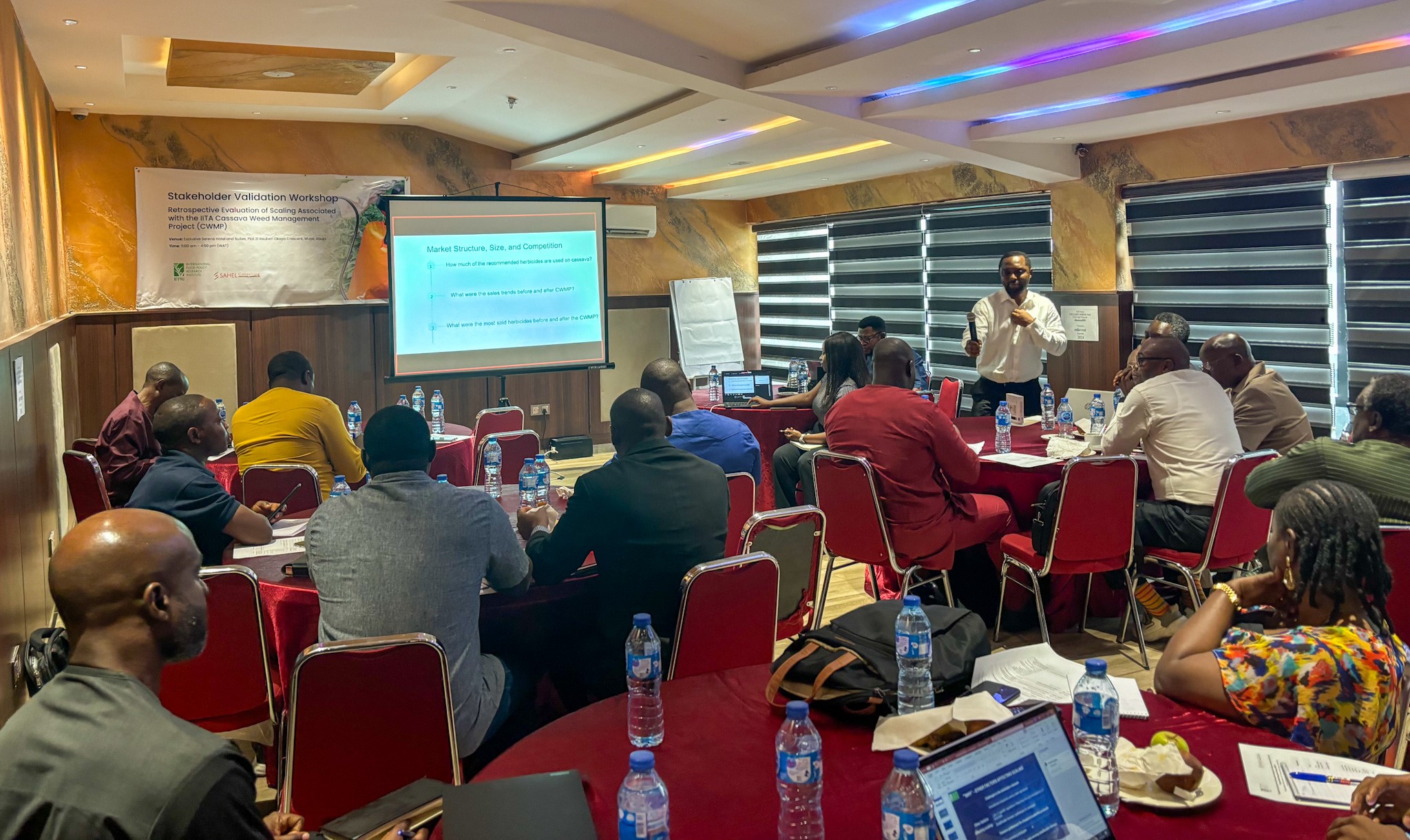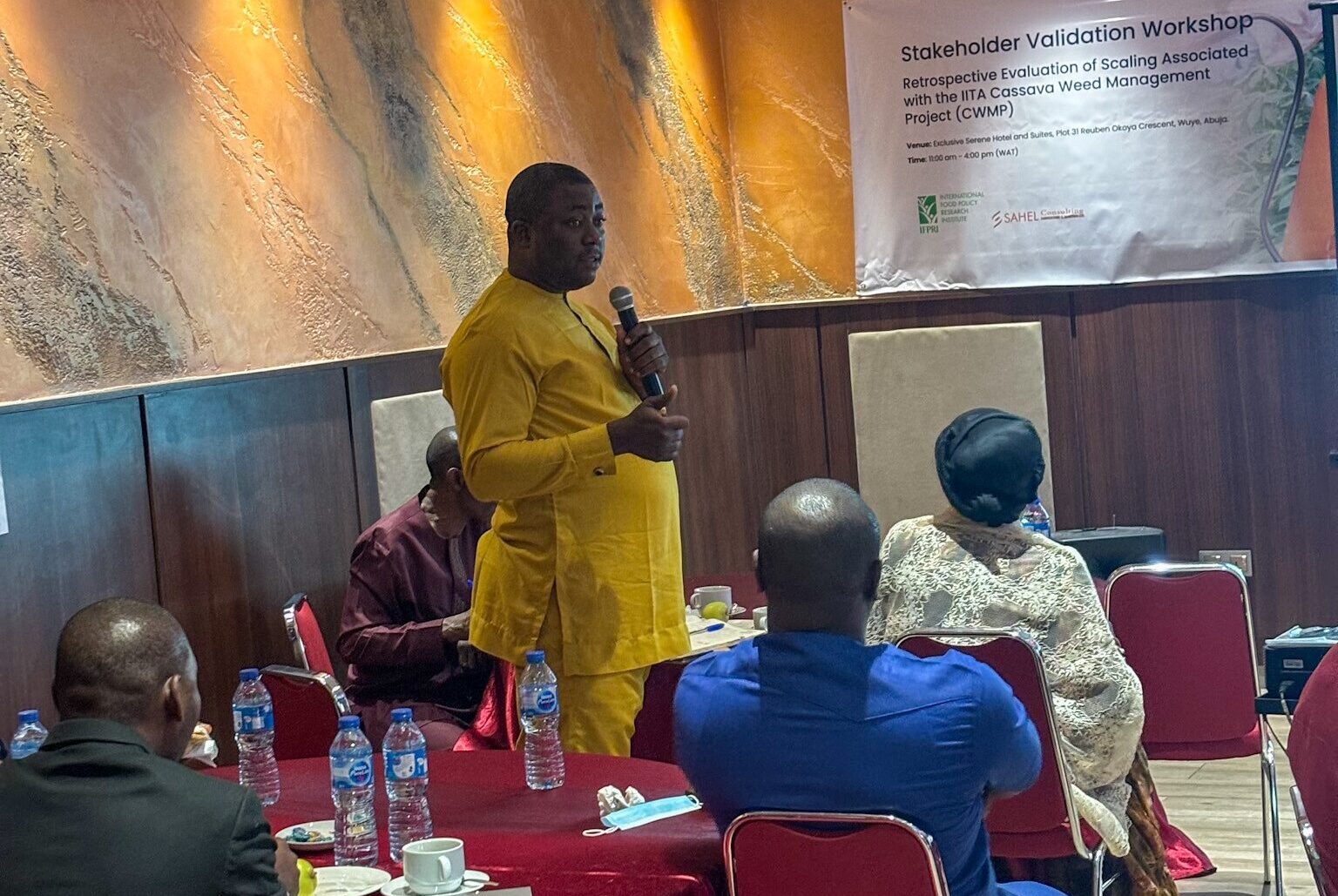 Participants at the Stakeholder Validation Workshop (online participants not shown). Photo credit: Onilogbo Omobolanle/IFPRI
Participants at the Stakeholder Validation Workshop (online participants not shown). Photo credit: Onilogbo Omobolanle/IFPRI
The International Food Policy Research Institute (IFPRI) and Sahel Consulting and Agriculture Limited organized a stakeholders validation workshop for the Retrospective Evaluation of Scaling Associated with the IITA Cassava Weed Management Project (CWMP) on February 22, 2024. Experts, policymakers, and industry representatives gathered to discuss herbicide usage, regulatory frameworks, and collaborative strategies.
Kwaw Andam, IFPRI-Nigeria Country Program Leader, and Chinedu Agbara, Managing Partner, Sahel Consulting, commenced the workshop by outlining study objectives and key discussion points. Participants delved into the market dynamics of herbicide usage in cassava farming, emphasizing transparency and collaboration.
The impending implementation of the ban on paraquat spurred discussions on safer alternatives and the role of regulatory bodies like the National Agency for Food and Drug Administration and Control (NAFDAC). Stakeholders recognized challenges in herbicide accessibility and proposed joint efforts to regulate pricing, emphasizing public-private partnerships to support smallholder farmers.
Stakeholders highlighted the significance of the CWMP and the benefits of herbicide adoption in optimizing cassava yields. A comprehensive overview of the study's background, methodology, and findings was provided, followed by an engaging Q&A session. Next steps in the evaluation process were outlined, stressing continued collaboration and stakeholder engagement.
The Retrospective Evaluation of Scaling Associated with the IITA Cassava Weed Management Project (CWMP) is funded by the Bill and Melinda Gates Foundation (BMGF), through a sub-award managed by the Evaluating Inclusive Transformation in Agriculture (EVITA) program at the Evans School Policy Analysis and Research (EPAR), University of Washington.
Participants discussing findings and remaining gaps during the validation workshop. Photo credit: Onilogbo Omobolanle/IFPRI



